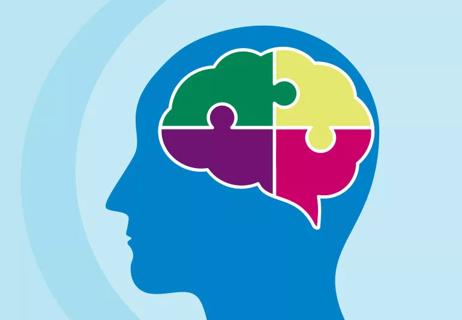Advertisement
Depression, anxiety are common and need to be addressed

Parkinson’s disease already affects people’s ability to walk and move normally, and when feelings of deep sadness or anxiety are added to the balance, it can make coping especially tough. But if you struggle with depression and anxiety, the good news is that there are many ways to treat these problems.
Advertisement
Cleveland Clinic is a non-profit academic medical center. Advertising on our site helps support our mission. We do not endorse non-Cleveland Clinic products or services. Policy
About 1 million Americans have Parkinson’s disease, and roughly half report mental health problems, says clinical health psychologist Taylor Rush, PhD. “Prevalence rates vary from 40 to 60 percent in the research, and I’d say my experience is reflective of those figures, as I encounter these issues quite often,” she says.
Knowing more about the interplay between mental health issues and Parkinson’s can help, she says.
Parkinson’s causes a drop in chemicals in the brain called neurotransmitters — especially dopamine — which affect movement and the brain’s reward center.
An imbalance of neurotransmitters and low levels of dopamine are also at work in depression. This shows why the two are frequently connected.
“Parkinson’s affects brain chemistry, so that’s part of why depression and anxiety symptoms are common in these patients,” Dr. Rush says. “Their brains are often affected in ways that make it more likely to develop symptoms.”
She says the mental effects can sometimes make physical symptoms worse. The signs she sees most often include:
The interplay between physical and emotional symptoms can lead to a downward spiral.
“If patients are developing physical symptoms, they may begin to move less, which can lead to more fatigue and a worse physical condition,” Dr. Rush says. “Then they start feeling even worse. So it’s a vicious cycle between depression and a sense of helplessness that feeds into some of their physical symptoms.”
Although there is no cure for Parkinson’s disease, there are many treatments — including medications — that can help reduce symptoms and slow disease progression. Patients with depression and/or anxiety will need additional treatment strategies.
“Treatment usually depends on how severe symptoms are and each patient’s goals,” Dr. Rush says. “For mild symptoms, we usually start pretty conservatively with just recommendations to improve behavior and possibly some lifestyle changes.”
Try to stay as active as you can, and take steps to minimize stress in your life as much as possible. Learning techniques to help you relax is also often helpful. Try to pace yourself and shift your focus to things that you can control.
Advertisement
“When symptoms are moderate to severe, we usually use psychotropic medications in combination, which help balance out the chemical changes in the brain. We also look at how patients’ thoughts affect their emotions and actions, and we offer suggestions to help address them.”
If you have Parkinson’s disease and also struggle with frequent depression or anxiety, you don’t go it alone. Turn to your family and friends for a strong support structure to help you cope. Joining a support group is often helpful — everyone there knows how you feel.
“We know from research that good social support is a protective factor against worsening depression and anxiety symptoms, so it’s incredibly important for patients to utilize the support they have available from family and friends,” Dr. Rush says.
She also has advice for those who are providing this support: “In some cases this means being an active listener without trying to fix their [the patient’s] frustration or sadness, and doing this can often be an incredibly helpful part of the coping process,” she says.
If you commit to lifestyle changes, your doctor’s treatment advice, and the support of family and friends, you give yourself the best chances of seeing improvement in your day-to-day life.
Dr. Rush advises patients: Take the tools you have and make them work for you.
“The patients who often do well are those who come in for treatment consistently, because they’re utilizing resources to their advantage,” Dr. Rush says. “It isn’t a matter of learning how to get rid of these symptoms, but the goal is to make the symptoms milder and less intrusive so they can still have a good quality of life.”
Advertisement
Learn more about our editorial process.
Advertisement

Following a healthy diet can boost your well-being

Why seeing a neurologist can save you time and money

In response to stress or danger, your brain responds by either defending itself, running away, stopping or reconciling

A variety of healthy foods can help reduce inflammation and keep other conditions at bay

Some ‘flare-ups’ are temporary and expected, others can signal a need to change therapies

Our collective misremembering of events comes from a surplus of false memories

Most routine vaccines are safe for people living with multiple sclerosis — but be sure to talk with your care team about your needs

Current research suggests 1 out of every 36 children in the U.S. has ASD — and that’s probably an undercount

Focus on your body’s metabolic set point by eating healthy foods, making exercise a part of your routine and reducing stress

PFAS chemicals may make life easier — but they aren’t always so easy on the human body

While there’s little risk in trying this hair care treatment, there isn’t much science to back up the claims